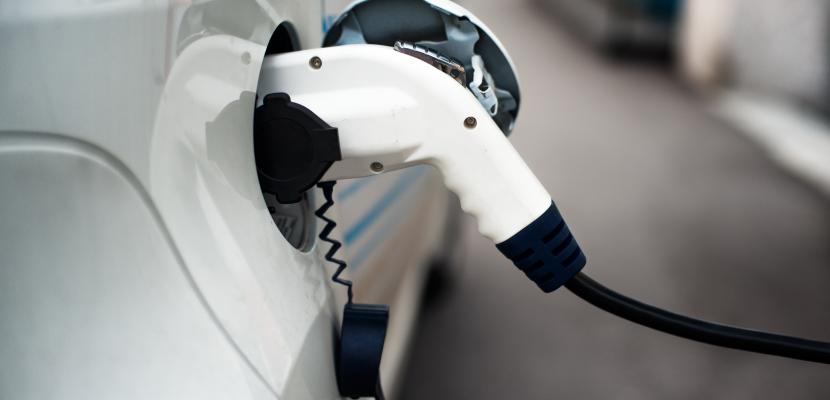Image

MOBI.E – Portuguese Electric Mobility Network
Published on 07 May 2020

Portugal
This is the good practice's implementation level. It can be national, regional or local.
About this good practice
The main goal of MOBI.E network is to contribute to a more sustainable mobility, to mitigate the growing dependence on fossil fuels and to improve the quality of life in cities. The Portuguese Electric Mobility Program aims to introduce and massify the use of EV through the introduction of an innovative system for the management of the network of charging stations allowing any user to charge in any publicly accessible charging station.
MOBI.E, S.A. is a public company responsible for the management of the national electric mobility network, that ensures the settlement of energy and financial flows resulting from the operations in the electric mobility network. The e-mobility network operates in an interoperable manner, i.e users are able to access any charging point in Portugal, regardless of the charging point operator, just through a RFID card. MOBI.E comprises charging stations installed in public and private spaces, from any licensed operator, and any station must be connected to the MOBI.E network.
The MOBI.E network had a pilot phase during which charging an EV had no costs to final user, followed by a commercial phase, in which the electricity charged by users is paid to a Retailer of Electricity for Mobility (CEME) that can freely define its commercial proposals. The Charging Point Operator (CPO) is responsible for making available the Charging Stations to users. CPO revenue, for the use of charging point, is collected through the CEME.
MOBI.E, S.A. is a public company responsible for the management of the national electric mobility network, that ensures the settlement of energy and financial flows resulting from the operations in the electric mobility network. The e-mobility network operates in an interoperable manner, i.e users are able to access any charging point in Portugal, regardless of the charging point operator, just through a RFID card. MOBI.E comprises charging stations installed in public and private spaces, from any licensed operator, and any station must be connected to the MOBI.E network.
The MOBI.E network had a pilot phase during which charging an EV had no costs to final user, followed by a commercial phase, in which the electricity charged by users is paid to a Retailer of Electricity for Mobility (CEME) that can freely define its commercial proposals. The Charging Point Operator (CPO) is responsible for making available the Charging Stations to users. CPO revenue, for the use of charging point, is collected through the CEME.
Expert opinion
This is an excellent practice for enabling a country-wide charging infrastructure that integrates the facilities of multiple companies and operators, with MOBI.E at the centre, enabling financial flows and between operators. In the process, the charging process is significantly easier for e-vehicle users who can make use of any charging point via the system’s card. The practice has had significant success and could be replicated in other territories.
Works at
Interreg Europe Policy Learning Platform
Resources needed
The Pilot was supported by Innovation Fund (FAI) with an incentive of €2.79 MEUR, as well as 2nd stage with an incentive of €2.81 MEUR
Later, the charging network was upgraded and enlarged under two projects with an investment of 4,2 MEUR, financed by Cohesion Fund and Portuguese Environmental Fund
Later, the charging network was upgraded and enlarged under two projects with an investment of 4,2 MEUR, financed by Cohesion Fund and Portuguese Environmental Fund
Evidence of success
Allows two types of charging: standard (2-8 hrs, full battery) and fast (15-30min, 80% battery). There are now 644 publicly accessible Normal Chargers (3,6-22 kW) and 74 publicly accessible Fast Chargers (45-50 kW), total 1.739 Plugs (1.534 Standard and 205 Fast). About 223 Municipalities (out of 308) are covered by the network. By July 2020 the network will cover all municipalities in Portugal mainland. Since 2010, provided more than 20 GWh of electricity and 133 M km travelled in electric mode
Potential for learning or transfer
The MOBI.E network is a nationwide initiative that involves municipalities, research centres, energy and IT companies, energy retailers, CPO and EV users. The underlying structure is highly replicable and can be applied to any region.
Furthermore, the lessons learnt from the Portuguese Electric Mobility Program can be used to improve other networks that may encounter difficulties at an initial phase. Among other aspects, it was necessary to redefine target groups and scenarios for the introduction of EV, expand the network to all municipalities and extend the applicability of electric mobility legislation and principles to the autonomous regions of Azores and Madeira.
The network is fully interoperable that means that any charge point that is publicly accessible in Portugal can be used by any user, irrespective of the CEME with whom the user has a contract and that different makes and models of charge points coexist in a seamless manner in the network.
Furthermore, the lessons learnt from the Portuguese Electric Mobility Program can be used to improve other networks that may encounter difficulties at an initial phase. Among other aspects, it was necessary to redefine target groups and scenarios for the introduction of EV, expand the network to all municipalities and extend the applicability of electric mobility legislation and principles to the autonomous regions of Azores and Madeira.
The network is fully interoperable that means that any charge point that is publicly accessible in Portugal can be used by any user, irrespective of the CEME with whom the user has a contract and that different makes and models of charge points coexist in a seamless manner in the network.
Further information
Website
Good practice owner
You can contact the good practice owner below for more detailed information.
Organisation
Portuguese Government

Portugal
Área Metropolitana de Lisboa
Contact
Technician
